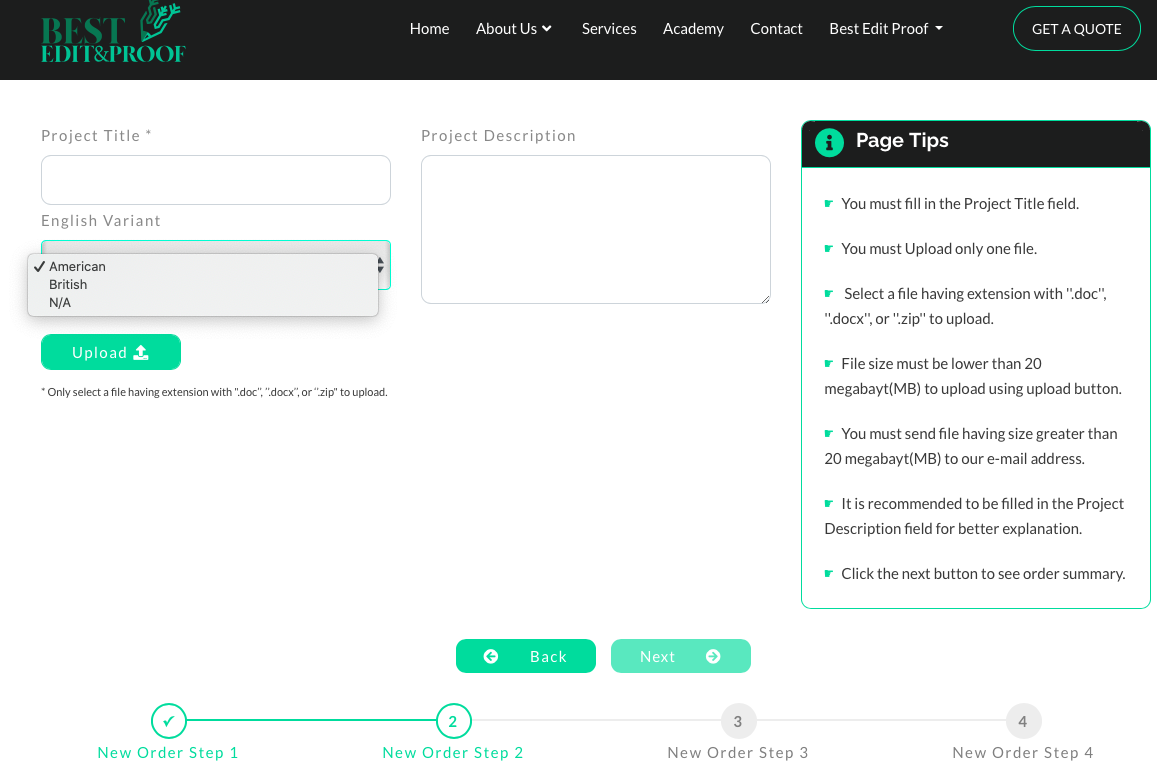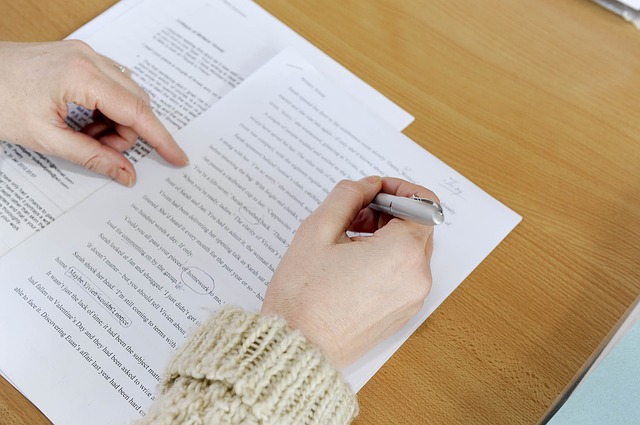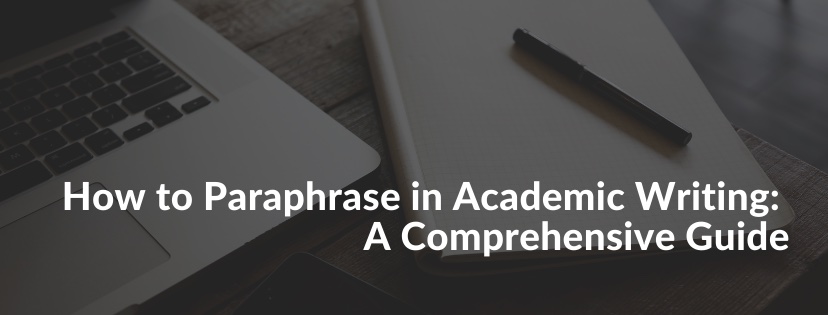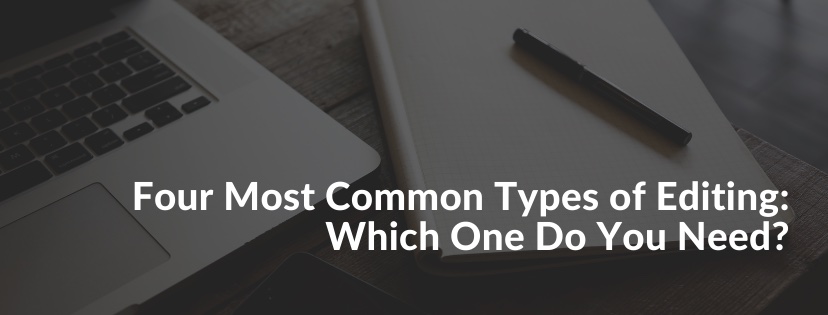After writing your manuscript, you may likely decide on an editor to perform the final checks on your document. Mostly, authors make the mistake of sending their manuscripts to their editors, without providing adequate information about specifications on the service they seek. With such limited information, your editor may produce an unsatisfactory job with limited information at his/her disposal. Thus, to ensure that your editors provide the best possible service, which will prevent journals from rejecting your manuscripts on the grounds of noncompliance to journal requirements, the following information should be provided beforehand.

After writing your manuscript, you may likely decide on an editor to perform the final checks on your document. Mostly, authors make the mistake of sending their manuscripts to their editors, without providing adequate information about specifications on the service they seek. With such limited information, your editor may produce an unsatisfactory job with limited information at his/her disposal. You have more to benefit from an editing or proofreading service, if you provide adequate information. Every manuscript should comply with unique specifications based on several factors, which may include the target journal, referencing style, and language. Thus, to ensure that your editors provide the best possible service, which will prevent journals from rejecting your manuscripts on the grounds of non-compliance to journal requirements, the following information should be provided beforehand.
First, editors should receive information about the desired type of service. Editing and proofreading are different, although they have similarities.
Primarily, the main purpose of proofreading service is to correct all errors in grammar, typography, punctuation, syntax, and spelling in a manuscript whereas the purpose of editing service is to improve the overall quality of writing by enhancing the flow, readability, and structure.
Failure to indicate the desired service may result in the editor proofreading your manuscript when your manuscript should be edited or vice-versa. Moreover, you may even end up paying more than required for your desired service. If an editor receives this information, he/she will provide the demanded service. To prevent a situation where your editor reverts your manuscripts with comments that suggest you subscribed for a service not appropriate for your manuscript, you can work with your editor/proofreader to settle on the appropriate service to choose. Sometimes, the recommended service may exceed your budget. Hence, it is best to collaborate with your editor to receive the best service.

A typical manuscript comprises sections, such as abstract, introduction, methods, results, discussion, conclusion, references, tables, figures, and legends. Mostly, editors focus on the main sections, neglecting other sections, such as the title page, keywords, references, legends, and tables. All other sections, regardless of their length, are important to the whole manuscript and should be paid enough attention to. In a case where you feel certain sections should be excluded to decrease the cost of service or prevent any unsolicited revisions, inform your editor beforehand.
Most importantly, inform your editor about the target journal and style guide. Some authors intend to send a particular copy of a manuscript to different journals. As a result, they mostly fail to provide their editors with information about their target journals. Various journals have different preferences and specific demands for formatting, language, and structure. While one journal may prefer APA for formatting, another may prefer the Vancouver style. In the best case, provide a link to the journal’s website for easy access to the journal’s information.
Sometimes, certain journals may have similar names as others. In such instances, you should be careful to indicate your target journal’s accurate name or web link. Also, your editor will notify you about other demands from your target journal, if you miss them. If you are uncertain about which journal to publish with, consult your editor. He/she, based on his/her subject-matter expertise, may help you decide on the best journal appropriate for your manuscript.
Tied to the target journal is the referencing style. Different journals require different referencing styles. The decision to use APA, MLA, Harvard, or other referencing styles lies with the target journal. Since most clients fail to provide information about the target journal to editors, the editors struggle to format the citation and reference lists to particular styles. Mostly, the reference lists are submitted with a mixture of different referencing styles—a practice that is unacceptable in academic writing. By due diligence, inform your editor about the referencing style to use to help him/her revise your citations and reference lists with a consistent style.

Finally, you must be clear on the type of proofing language to use. English, as is widely spoken and written, possesses nuances based on country conventions. Most times, clients submit their manuscripts with a mixture of these language types. This renders the editor confused about which language to use for consistency.
For academic writing, most journals require either American or British English. Most professional editors are abreast and skilled at detecting these nuances. Without this information, editors may revise your manuscript to suit a particular type of English that may not be required by your target journal.

Here is an example showing why preferred English is of importance. As we know, there are two punctuation systems, which are called American style (or North American Style) and British style. The usage of single or double quotation mark is dependent on the preferred type of English in your manuscript. For instance, American English requires using double quotes consistently for all conditions where quotation marks may be needed. However, British English requires single quotation marks. Hence, the author should be conscious of the language to make the correct use of single or double punctuation marks. To see the common punctuation errors in academic essays, click here.
Also, in American English, a comma is added before and after Latin abbreviations such as e.g., etc., i.e., while a comma is inserted before but not after i.e., in British English. To ensure that you receive the best value, you should provide your editor with extensive information on the details of the service to be provided. Remember your manuscript may not be the only one on your editor’s desk. Thus, at first hand, provide every necessary detail to make your editor’s work easy. With such information at our disposal, your editors at Best Edit & Proof are ready to provide the best service possible to ensure your manuscript is of high quality and ready for acceptance and publication by your target journal.
Best Edit & Proof’s proofreaders and editors aim to provide your manuscript with proper scholarly and academic tone and style. They will improve significantly the chances of having your research manuscript accepted for publishing. Our doctorally qualified editors provide subject-matter proofreading and editing services in a number of fields categorized under various disciplines. Having considerable knowledge and expertise, they will help you find the right tone and style for your paper.

If you need Best Edit & Proof expert proofreaders and editors to format your academic manuscripts, or to give you the fundamental rules for formatting your academic manuscripts as described in your guidelines, such as MLA and APA styles, then contact us. At Best Edit & Proof, our proofreaders and editors edit every type of academic manuscript.
If you would like our language and subject-matter experts to work on your project and improve its academic tone and style, then please visit the order page. We have a user-friendly website and our ordering process is simple. It’s easy! It takes only a few minutes to submit your manuscript and complete the process. Click here to see how it works.
We have flat-rate pricing based on the type of service, word count, and turnaround time. Enter your word count or copy and paste your document into our pricing calculator to get an instant quote.
If you need support for editing and proofreading services, contact us. You can also e-mail us or use the 24/7 live chat module to get direct support. We have a 24/7 active live chat mode to offer you direct support along with qualified editors to refine and furbish your manuscript. Alternatively, you can text us through our WhatsApp business line.
Follow us on Twitter, LinkedIn, Facebook, Instagram, and Medium.
For more posts, click here.
This blog discusses five essential information editors need during the editing and proofreading processes. To give you an opportunity to practice proofreading, we have left a few spelling, punctuation, or grammatical errors in the text. See if you can spot them! If you spot the errors correctly, you will be entitled to a 10% discount.
How to Determine Variability in a Dataset
14.10.2023
How to Determine Central Tendency
19.02.2023
How to Specify Study Variables in Research Papers?
14.01.2023
Population vs Sample | Sampling Methods for a Dissertation
14.01.2023
How Much Do Professional Editing and Proofreading Cost?
01.02.2022
How Much Do Proofreading and Editing Cost?
19.06.2021
How to Ensure the Quality of Academic Writing in a Thesis and Dissertation?
04.12.2022
How to Avoid Anthropomorphism in Your Dissertation?
04.11.2022

Academic and research works are tenacious studies that include specifics. Therefore, you will come across various terms and phrases that you need to keep in mind while working around. Naturally, it can get overwhelming. However, once you understand the concept, the overall process becomes very easy to work with. This article will focus on dependent and independent variables and discuss what they are, how to determine dependent and independent variables and their uses in academic writing.
Continue Reading
Researchers who are not native speakers of English are mostly confronted with some challenges in getting their papers published. This is probably why the editing and proofreading business has flourished in the field of academics over the past decade. Still, this business is inefficiently controlled and is often extremely problematic. The quality of the services is extremely uneven, and target groups of the editing services (e.g., clients, peer-reviewed journals, institutions, and readers) may be shackled by several fallacies. To deal with them, we discuss some myths about academic editing and proofreading services.
Continue Reading
Depending on the skills and budget, you can do your proofreading. Yet, getting professional help will give you better products and advice. This will improve your piece of writing for the best. In this guide, we will breeze you through brief info on what proofreading services are.
Continue Reading
Paraphrasing is a regular exercise in academic writing. High school students, college students, and research scholars are required to paraphrase to demonstrate their understanding of a text. However, there are cases when, due to ineffective paraphrasing, instances of plagiarism dot an academic manuscript. Therefore, academic writers must correctly understand the fundamentals of academic paraphrasing and apply them to their writings to avoid any occurrence of any academic offense. This article will peruse the anatomy of academic paraphrasing. In addition, it will examine how paraphrasing is different from summarization and suggest ways to paraphrase effectively.
Continue Reading
Many researchers get confused about what can or cannot be labeled as editing. There are still people who tend to confuse proofreading with editing as the same thing. However, that is not the case. Proofreading is a type of editing and falls under the process of writing. In this article, we will take the liberty to go through some of the most basic and most important types of editing that you must know of.
Continue Reading